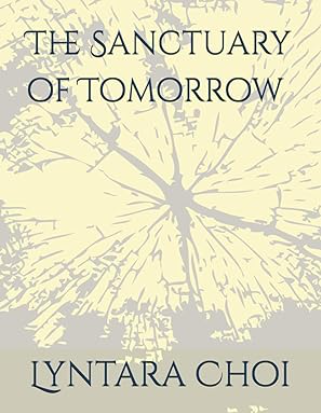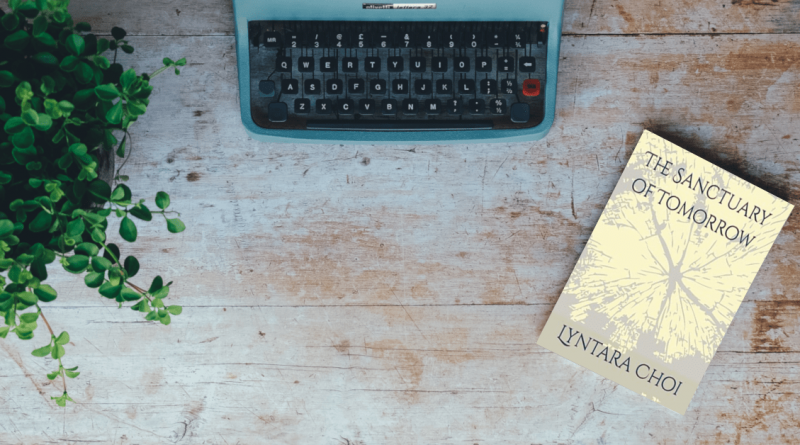The Sanctuary of Tomorrow – Book Review

by Lyntara Choi
This is the queer historical fiction I needed right now! I am so grateful to have received a review copy of this book, and I’m very happy to share my spoiler-free review with you here today. We are introduced to our story with a prologue set in Florence, Italy in 1918.
The Plot
With a post-World War I Europe fighting to rebuild its cities and its soul, Lyntara Choi tells a profoundly human tale of fear, hope, and resiliency in The Sanctuary of Tomorrow. With a speculative twist that feels both ageless and uncannily present, what starts out as a historical drama swiftly turns into a poignant examination of identity, love, and belonging.
The Characters
Martino Griffiths, a telepath born into a society that has banned individuals like him, is at its center. Telepaths, who were once hailed as heroes, are now despised and are feared instead of being used as weapons of war. The emotional weight of the book is anchored by Martino’s boyhood experience, where he was betrayed by his own parents after losing control of his abilities. He is a captivating, wounded protagonist that you can’t help but support because of his escape from Florence and the crippling guilt he bears.
The narrative really comes to life when Choi decides to incorporate Martino’s story into the lives of Maxine and Jodi Ocampo-Weber, a married couple in 1930s London. Their relationship, which is a covert marriage between two women posing as husband and wife, adds another dimension to the overalls tory. Max and Jodi together represent the silent resistance of love that endures in secret. Their house turns into a haven for truth, compassion, and chosen family when they put everything on the line to take Martino in.
Things I Liked
As Martino’s presence reveals both opportunity and danger, the story’s emotional drive develops masterfully. While telepathic components provide a sense of urgency that verges on mythic, the novel’s later chapters, when friendship and discovered family blossom amid terror, have a tenderness evocative of classic character dramas. Choi skillfully strikes a balance between these tones.
The humor, sensitivity, and tension of people attempting to live honorably in a dishonest environment are captured in the lively and organic discourse. While the novel’s sociopolitical undercurrents—queer identity, institutional persecution, and governmental control—are handled with intellect and sensitivity, Maxine’s Filipino heritage and Choi’s attention to linguistic and cultural nuances enrich the narrative.
It becomes evident that The Sanctuary of Tomorrow is about more than simply telepaths and war-torn Europe by the time the narrative crescendos into its final act, which includes a bold rescue, a moral reckoning, and an uncertain hope for a better world. It’s about the havens we create within ourselves and the brittle, ferocious bonds that enable us to survive.
Writing Style
Lyntara Choi writes with a confident tempo, empathy is evident, and her language is intimate yet cinematic. This is well-executed speculative historical fiction, grounded in humanity and enhanced by creativity.
Why You’ll Love It
- A blend of historical fiction and science fiction that feels organic, not forced.
- Complex, intersectional representation: queer love, found family, and marginalized identities.
- Emotional stakes grounded in moral choices rather than spectacle.
- Lyrical prose and intelligent worldbuilding that invite reflection on empathy, power, and survival.
Verdict:
A touching, eerie, and optimistic book, The Sanctuary of Tomorrow demonstrates that kindness can triumph over fear. This is a narrative that stays with readers long after the last page, especially those who enjoy character-driven speculative fiction—think of it as The Night Watch by Sarah Waters meets The Power by Naomi Alderman.
5 stars from me!
